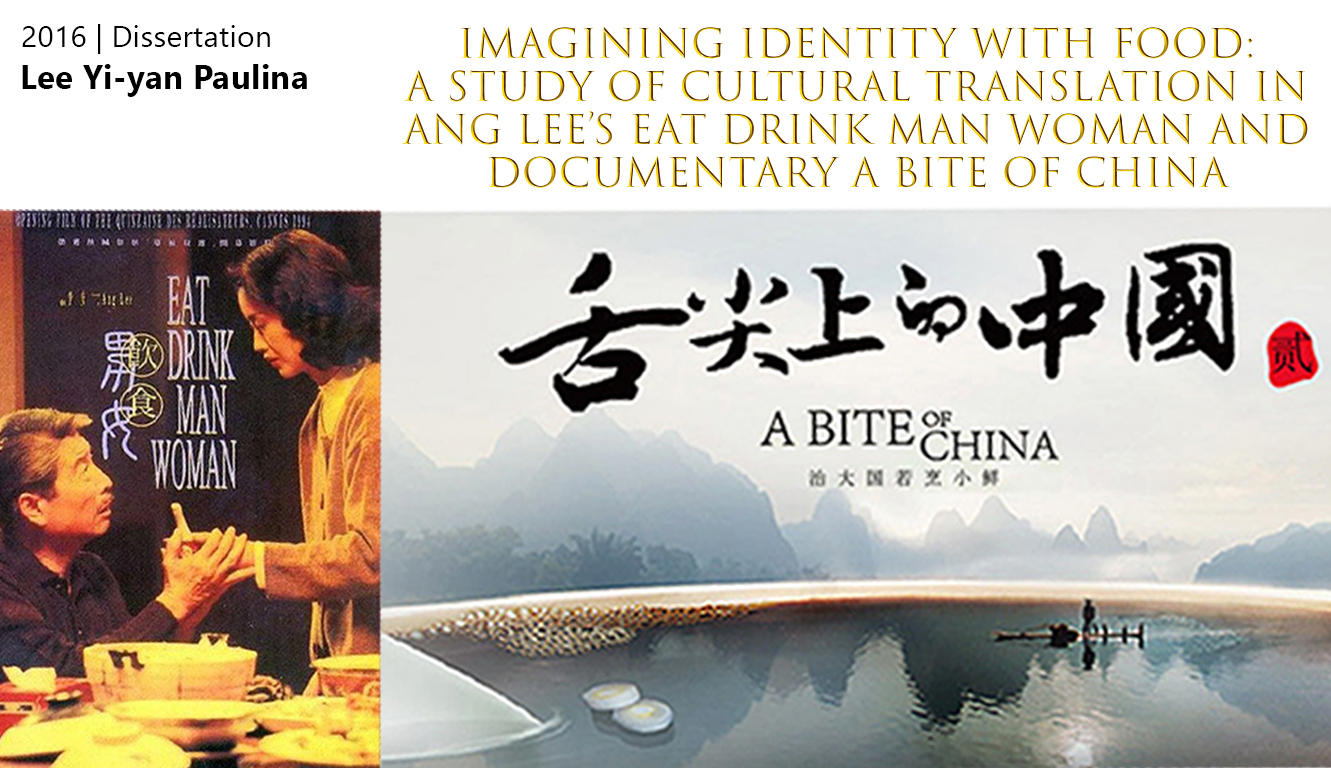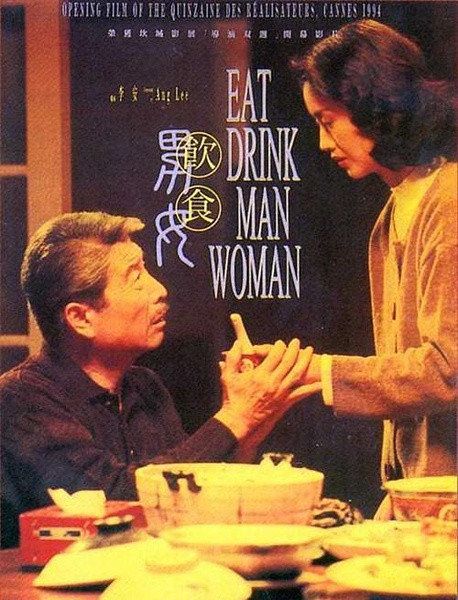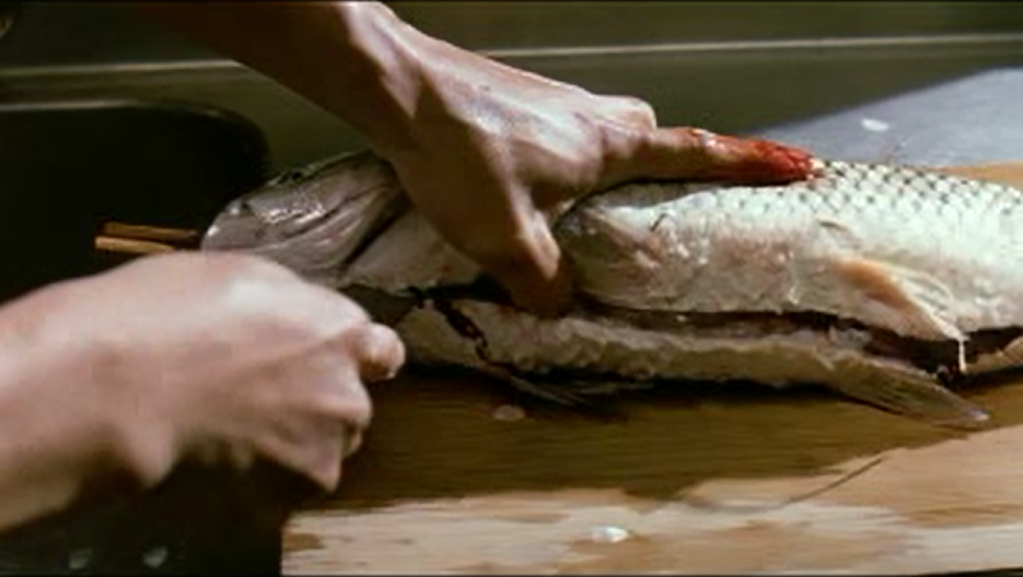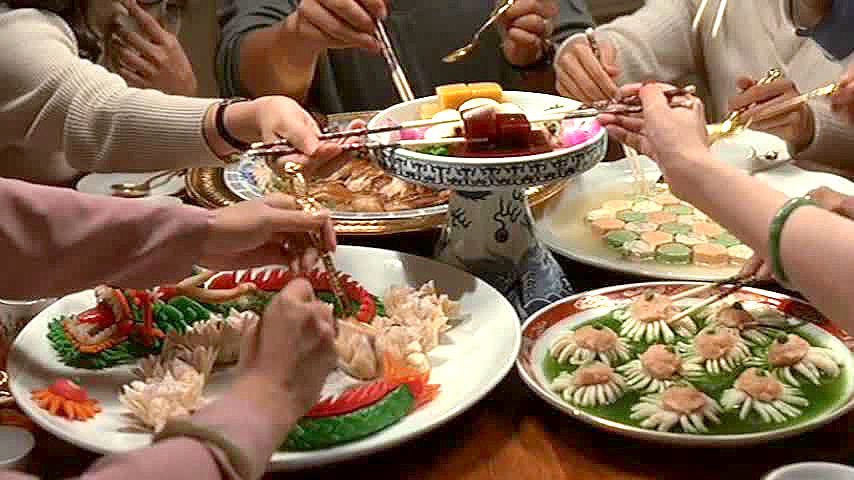Introduction
This study seeks to invite the readers to look at the most unimagined unit of everyday life – food – from an alternative perspective. In audiovisual cultures, food is more than a socio-cultural phenomenon, for it represents the audiences’ desire for self-identification. Forming a creative dialogue between Ang Lee’s film Eat Drink Man Woman 飲食男女 (1994) and the televisual documentary series A Bite of China 舌尖上的中國 (2012), this study proposes that the representation of food is also the articulation of hunger for a national-cultural identity.
Through the theoretical frameworks of cultural translation, global and food studies, this study discusses how food images are employed to resolve the post-modern identity crisis at an imagined level: (i.) solving the problem of origin with the discourse of tradition, (ii.) deferring hunger with the voyeuristic pleasure created by the spectacles of cooking, and (iii.) mystifying family and community kinships by sentimentalizing the images of eating.
If interested, you may read Paulina’s Dissertation here.
Experience at MALCS
The time studying at the MALCS programme is a beautiful and precious chapter of my life. Enrolled as a full-time student, the one-year intensive programme had greatly assisted me in developing a strong theoretical foundation, critical evaluation ability, open-minded world view, and a unique intellectual voice. In the programme, I learnt treasurable knowledge from my teachers as well as from my colleagues, who come from diverse cultural backgrounds and academic experiences. Currently as an independent multi-disciplinary artist in Europe, the knowledge that I received from the programme is still highly relevant to my creative projects, and they are supporting me in many ways to manifest my visions in this world. I highly recommend this programme to individuals who are eager to deepen their studies in the field of comparative literary and cultural studies.





